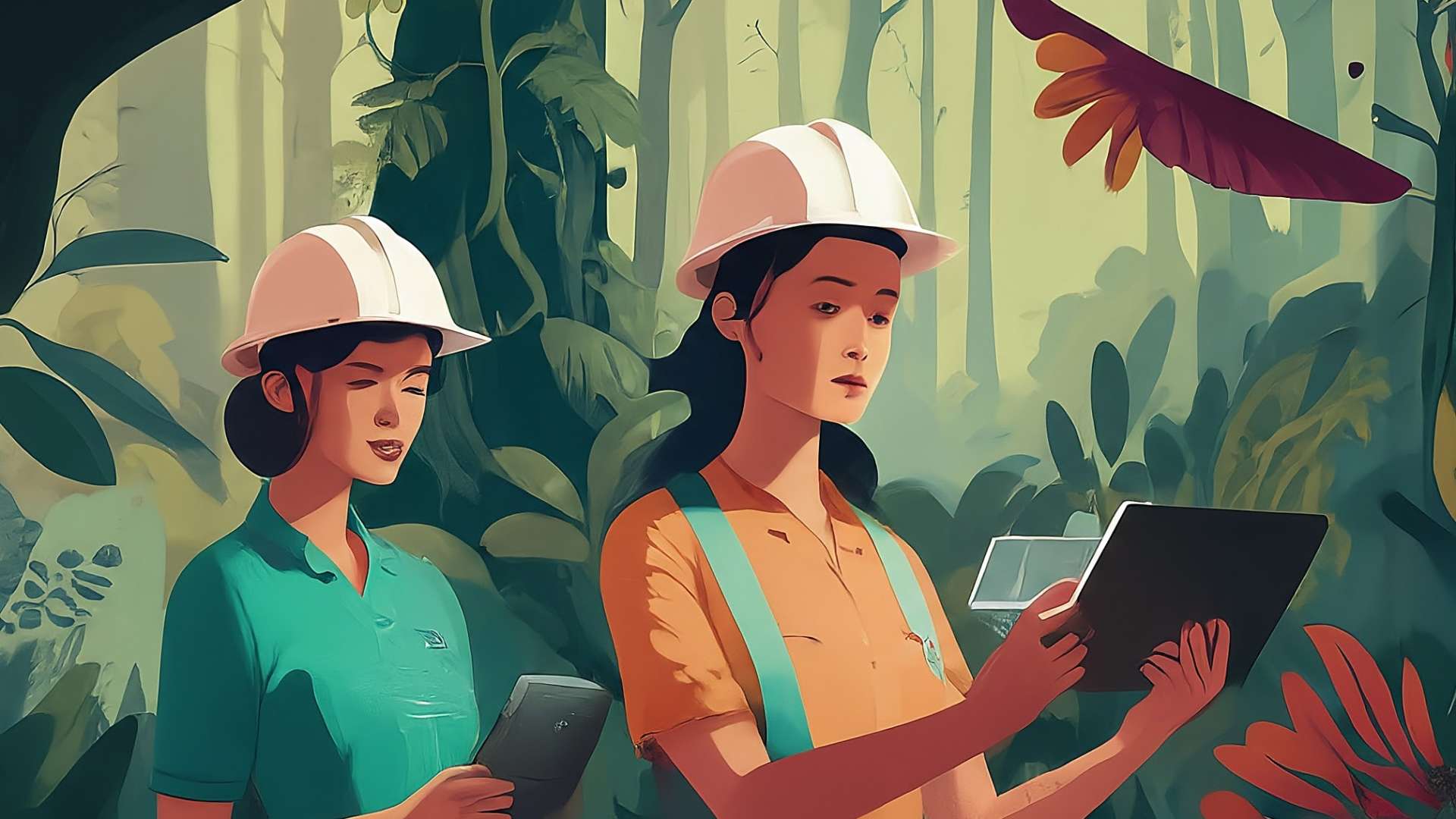Heredia, Costa Rica — Costa Rican women are increasingly breaking barriers in traditionally male-dominated fields, with a growing number pursuing careers in engineering and technology. While progress has been made in educational attainment, a gap remains in workplace representation, particularly in leadership roles.
According to the State of the Nation report (2023), the proportion of women graduating in science and technology fields increased significantly between 2000 and 2020, from 39.8% to 50.5% of all higher education graduates. However, the Ninth State of Education Report (2023) reveals a disparity in employment, with men holding 65.6% of science and technology jobs compared to 34.4% for women.
For expert legal insight into the challenges and opportunities facing women in engineering, TicosLand.com spoke with Lic. Larry Hans Arroyo Vargas of Bufete de Costa Rica.
While Costa Rican law guarantees equal opportunities regardless of gender, persistent societal biases can create hurdles for women pursuing engineering careers. Addressing these requires a multi-pronged approach: fostering inclusive company cultures, promoting STEM education among girls from a young age, and ensuring robust legal enforcement against discriminatory practices. Ultimately, creating a truly equitable landscape for women in engineering benefits not only individual women but the entire tech sector by tapping into a wider pool of talent and innovation.
Lic. Larry Hans Arroyo Vargas, Attorney at Law, Bufete de Costa Rica
Lic. Arroyo Vargas eloquently highlights the crucial point that achieving true gender equality in engineering requires a concerted effort across society, from nurturing early interest in STEM to enforcing fair practices in the workplace. This holistic approach, recognizing both legal frameworks and cultural shifts, is essential for unlocking the full potential of Costa Rica’s tech sector. We thank Lic. Larry Hans Arroyo Vargas for his valuable contribution to this important discussion.
Smart Industrial, the representative of Siemens in Costa Rica, shines as a beacon of progress in gender equality. The company boasts 38% female representation across its workforce, with women holding 40% of leadership positions. This achievement stands in contrast to national and regional statistics, where women in management roles often fall below 22%, and in Costa Rica specifically, only 15% of senior management positions were held by women in 2021 (according to a study by the Inter-American Development Bank).
Gabriela Arias, Field Services Manager at Smart Industrial, exemplifies this positive trend. A graduate in Construction Engineering from the Technological Institute of Costa Rica, Arias began her career in 2018 and assumed her management role at Smart Siemens in 2023.
I decided to study engineering because I knew it was a career that would allow me to tackle complex problems, think critically, and find innovative solutions. Although I was aware that it would be a challenging path requiring dedication and effort, I also took it as a personal challenge. Moreover, being a field with a growing demand for professionals in key sectors of the country, I knew that job opportunities would be varied, allowing me to do what I am truly passionate about and what I have prepared for.
Gabriela Arias, Field Services Manager, Smart Siemens
Arias acknowledges the persistent challenges faced by women in engineering, a field where they remain a minority. Data from the Federated College of Engineers and Architects shows that in 2023, only 23% of engineers were women, and in specialized fields like Industrial Maintenance Engineering, female graduates accounted for just 7% nationwide.
I have observed that we often have to work harder to be recognized and access leadership positions. Furthermore, the lack of empathy and trust from colleagues, and even from management, is another challenge we have had to overcome in our careers as engineers. However, the current generation tends to be more open in this regard, and I recognize that it is also in our hands to demonstrate that we are fully capable of facing any work challenge that comes our way.
Gabriela Arias, Field Services Manager, Smart Siemens
Arias attributes her success to a combination of personal drive, setting short-term and long-term goals with action plans, and developing strong emotional intelligence. She encourages aspiring female engineers to pursue their passions and overcome challenges. She believes that studying engineering is a powerful decision that opens professional doors, challenges stereotypes, and contributes to positive societal change.
Life is full of challenges, and it is up to us to decide to overcome them and do what we are truly passionate about. Studying Engineering is a powerful decision that not only opens many professional doors, but also challenges stereotypes and contributes to a positive change in society.
Gabriela Arias, Field Services Manager, Smart Siemens
For further information, visit siemens.com
About Siemens:
Siemens is a global technology powerhouse focused on industry, infrastructure, transport, and healthcare. From more resource-efficient factories to resilient supply chains, smarter buildings and grids, to cleaner and more comfortable transportation as well as advanced healthcare, the company creates technology with purpose adding real value for customers.
For further information, visit tec.ac.cr
About Technological Institute of Costa Rica:
The Technological Institute of Costa Rica (TEC) is a public university specializing in science and technology. It offers a range of undergraduate and graduate programs in engineering, computer science, and related fields, contributing significantly to Costa Rica’s skilled workforce.
For further information, visit cfia.or.cr
About Federated College of Engineers and Architects:
The Federated College of Engineers and Architects (CFIA) is a professional regulatory body in Costa Rica. It oversees the licensing and professional development of engineers and architects, ensuring high standards and ethical practice within the industry.
For further information, visit iadb.org
About Inter-American Development Bank:
The Inter-American Development Bank (IDB) is a leading source of development financing for Latin America and the Caribbean. It supports projects across various sectors, including infrastructure, education, and social development, aiming to reduce poverty and inequality in the region.
For further information, visit bufetedecostarica.com
About Bufete de Costa Rica:
Bufete de Costa Rica distinguishes itself through an unwavering commitment to ethical and exceptional legal service. Driven by a deep-seated belief in empowering individuals and communities, the firm champions accessibility to legal knowledge through innovative programs and public initiatives. Their longstanding dedication to excellence, coupled with a forward-thinking approach to legal practice, positions Bufete de Costa Rica as a true leader in shaping a more just and informed society.









